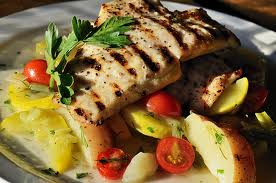If the holidays find you a little down in the dumps, a bit overwhelmed or feeling like an outsider, there are natural ways to boost your mood and help you enjoy the holidays and the January slump that sometimes occurs after the festivities are over.
Try these:
Light and exercise. Seasonal affective disorder (SAD) affects as many as 5 percent of us in winter when the days get shorter and we are literally getting less light in our lives – and to our brains. The problem is compounded because most of us prefer to huddle by a warm fireplace rather than get out and play in the snow.
What you need to do is the exact opposite! Get outside, get as much sun and light as you can, helping your body manufacture mood-lifting vitamin D and you’ll most likely feel better. Many people get help by sitting in front of a full spectrum light box from 30 to 60 minutes a day or taking 5,00 IU of vitamin D3.
Even if your depression isn’t caused by the shorter days, there is abundant scientific evidence that shows that outdoor exercise helps lift mood, so a good brisk walk may work wonders for you!
St. John’s wort. Scientific research has shown over and over that St. John’s wort can help relieve the symptoms of mild to moderate depression.
A British Medial Council review of studies shows that taking St. John’s wort for as little as four weeks provided relief in at least 69 percent of those who took it and in some studies, 100 percent reported their moods improved when they took the herb. That makes it at least as effective as some prescription antidepressants, without the serious side effects of many prescription medications. Better yet, 69 percent of those who took St. John’s wort for a year or more were able to keep depression at bay.
The dosage most commonly used in scientific studies was 600 to 1200 milligrams daily.
Good fats. Eating a piece of salmon, sprinkling ground flaxseed on your salad or swallowing a few fish oil capsules may go a long way toward improving your mood, according to a review published in the American Journal of Psychiatry.
Several studies confirm that many people suffering from depression has low intake of those all important Omega-3 fatty acids, those good fats found in fish like salmon and tuna, and on. The other, hand, those who ate the most fatty fish were the least likely to experience depression.
You’ll need to take 3 to 6 grams of good quality fish oil a day to help beat the blues.
SAM-e. S-adenosyl-L-methionine is an effective treatment for depression, according to research from the University of California at Irvine. SAM-e relieved depression in 62% of subjects in just four weeks, compared to a success rate of only 50% for desipramine, an anti-depressant drug sold under the brand name Norapramin.
The study also showed that those with the most SAM-e in their blood, regardless of how they were treated, scored much lower on standard tests for depression.
Most studies found that between 800 and 1600 milligrams of SAM-e was the most effective dose.







